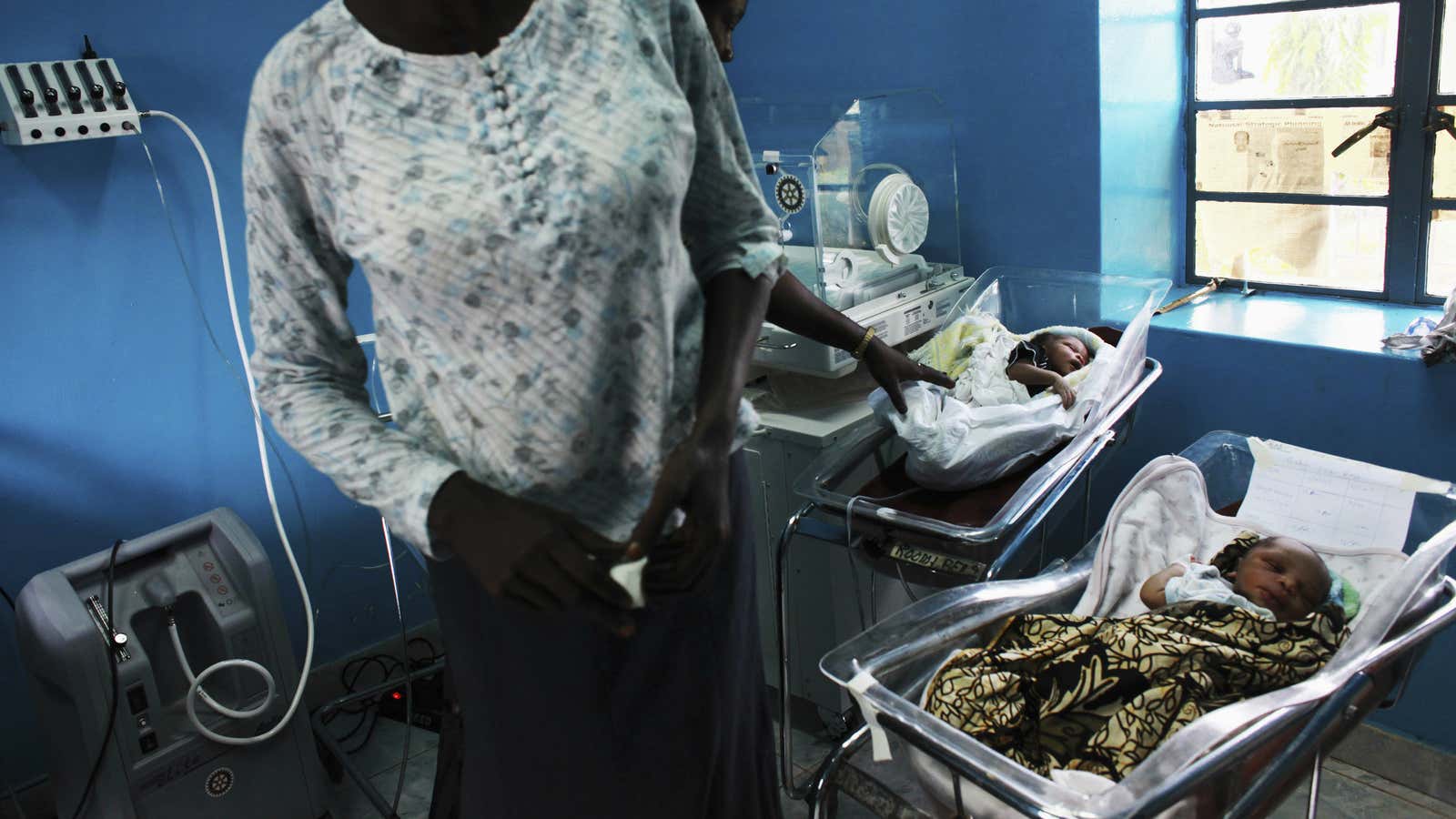The healthcare problems in many African countries are well-known but one group that seems to be particularly at risk of those failings are newborns.
A new UNICEF report on newborn mortality shows that global deaths of newborns remains “alarmingly high.” The report categorizes newborns are children aged less than one month. The “vast majority” of the deaths are preventable, UNICEF says, with more than 80% of the deaths being due to premature birth, labour and delivery complications as well as infections.
While there has been progress with reducing deaths among children aged between one month and five years, when it comes to newborns, progress has been slower. Around 2.6 million newborns die globally every day, the report states.
For newborns, the risk of death depends strongly on where they are born. In the world’s safest countries for newborns, the average death per thousand births in the first 28 days is one but in the riskiest countries, the mortality rate is much higher. Pakistan, the worst ranked nation, records around 46 newborn deaths per 1,000 births—almost one in 20. Of the ten worst ranked countries, however, eight are in Africa. For instance, in Somalia, home to one of the world’s highest newborn mortality rates, there is only one doctor, nurse or midwife for every 10,000 people, according to 2014 data.
There’s also a strong correlation between a newborn survivals and the national income levels as high income nations have an average death per thousand live births rate of 3.3 while, for low income nations, that number is 27. Bridging that gap promises great reward as UNICEF says if every country works to cut its newborn mortality rate to below or around the average recorded in high-income countries by 2030, 16 million newborn lives could be saved.
But while high levels of income typically mean more people can afford better healthcare, it is not a magic pill solution. UNICEF notes that even when financial and health resources are limited, strong political will can ensure that limited resources are maximized. One such example where that is evident is Rwanda where the newborn mortality care has been reduced by more than half between 1990 and 2016 despite being a low-income nation. Broadly, the report recommends increasing access to and quality of healthcare as solutions to stop newborn deaths.
UNICEF also notes countries with large populations and higher number of births might record more deaths while having a lower mortality rate than the worst ranked countries. Nigeria, DR Congo and Ethiopia, with a joint population of over 350 million people, are among the five countries with the highest number of newborn deaths in 2016.
